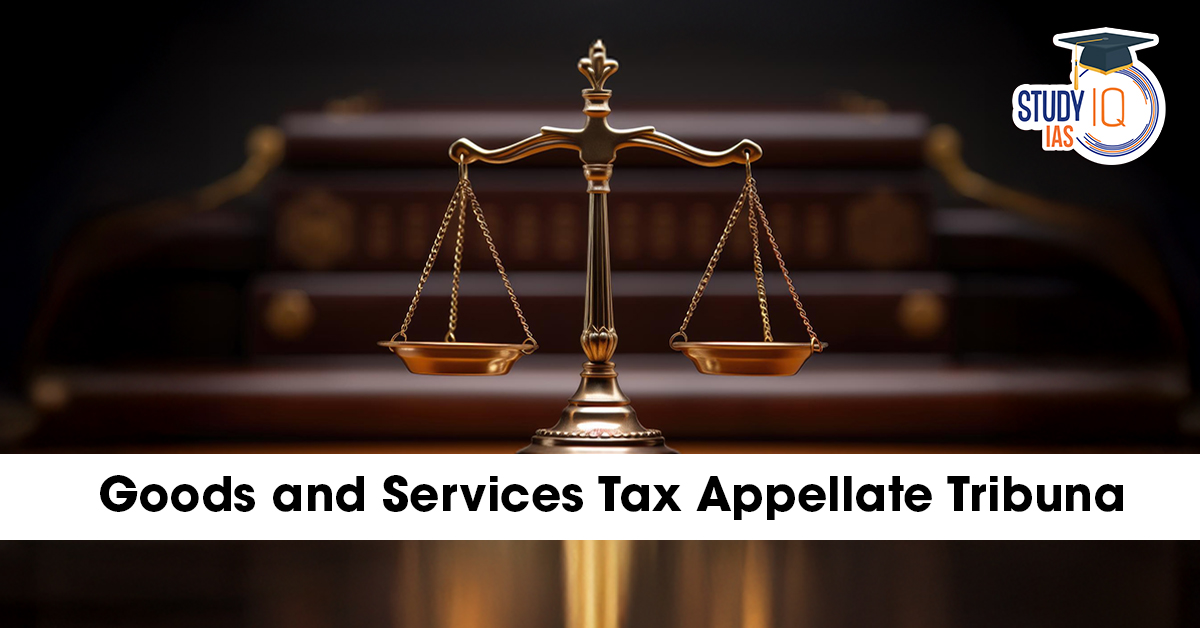Table of Contents
The Goods and Services Tax Appellate Tribunal (GSTAT) is a significant step towards strengthening India’s GST framework. Formally launched by the Union Finance Minister, GSTAT has been established as a specialized, independent forum to streamline the appellate process under the GST regime. This initiative aligns with the broader vision of “One Nation, One Forum” and “Nagarik Devo Bhava” for citizen-centric governance.
What is GSTAT?
The Goods and Services Tax Appellate Tribunal (GSTAT) is a statutory body set up under the Central Goods and Services Tax (CGST) Act, 2017. Its primary function is to hear appeals against the orders passed by Appellate or Revisional Authorities under the GST framework. GSTAT is designed to improve the credibility, orderliness, and predictability of GST laws while ensuring a specialized, efficient, and technology-driven appellate mechanism.
Objectives of GSTAT
The creation of GSTAT is guided by several core objectives:
-
Unified Appellate Forum – “One Nation, One Forum”
-
GSTAT provides a single appellate forum for taxpayers and authorities across India, reducing fragmentation and promoting consistency in judgments.
-
-
Timely Resolution of Disputes
-
Ensures faster dispute settlement, improving business cash flow and certainty in commercial operations.
-
-
Citizen-Centric Governance
-
Introduces simplified formats, plain-language decisions, checklists, and virtual hearings for ease of compliance and better accessibility.
-
-
Next-Gen GST Alignment
-
Supports advanced reforms in GST administration, enhancing transparency, efficiency, and predictability in tax processes.
-
Structure of GSTAT
The structure of GSTAT is designed to ensure nationwide reach and judicial-technical balance:
-
Principal Bench: Located in New Delhi, serving as the apex appellate forum.
-
State Benches: 31 benches across 45 locations in India to provide regional access.
Bench Composition:
-
2 Judicial Members – ensuring legal scrutiny and interpretation of GST law.
-
1 Central Technical Member – representing central tax administration.
-
1 State Technical Member – representing state tax authorities.
This judicial-technical integration ensures that both legal and technical aspects of GST disputes are comprehensively addressed.
Functions and Features of GSTAT
GSTAT functions on the Three S’s Approach:
-
Structure – Combines judicial and technical expertise for balanced decision-making.
-
Scale – Large-scale operations through multiple state benches; single-member benches handle simpler cases to expedite resolution.
-
Synergy – Integration of technology, process, and human expertise for efficient dispute management.
E-Courts Portal and Technology Integration
GSTAT leverages technology for ease, speed, and transparency:
-
Online Filing – Taxpayers can file appeals digitally without visiting the tribunal physically.
-
Case Tracking – Real-time updates and notifications on case status.
-
Virtual Hearings – Remote hearings facilitate convenience and reduce delays.
This digital-first approach aligns with India’s Next-Gen GST reforms and modern judicial practices, ensuring fast, transparent, and taxpayer-friendly dispute resolution.
Importance of GSTAT
-
Predictability in Tax Administration – Uniform rulings help businesses plan finances better.
-
Improved Business Confidence – Timely resolution of GST disputes ensures smoother business operations.
-
Enhanced Credibility – Independent tribunal reduces the possibility of bias and strengthens taxpayer trust.
-
Ease of Compliance – Simplified procedures, checklists, and virtual access reduce the compliance burden.
Conclusion
The Goods and Services Tax Appellate Tribunal (GSTAT) marks a milestone in India’s GST journey. By integrating judicial expertise with technical knowledge, leveraging technology, and expanding nationwide access, GSTAT embodies the principles of efficient, transparent, and citizen-friendly governance. Its creation reinforces the “One Nation, One Forum” vision, ensuring that India’s GST ecosystem continues to evolve in a structured, predictable, and taxpayer-oriented manner.


 Agentic AI vs AI Agents: Meaning, Differ...
Agentic AI vs AI Agents: Meaning, Differ...
 Prahaar Missile System: Range, Features ...
Prahaar Missile System: Range, Features ...
 New GDP Data and Methodology Update: Key...
New GDP Data and Methodology Update: Key...




















